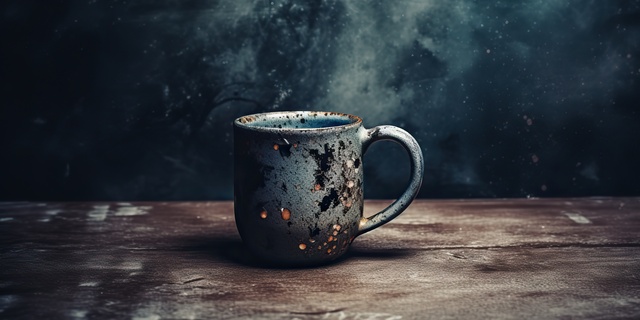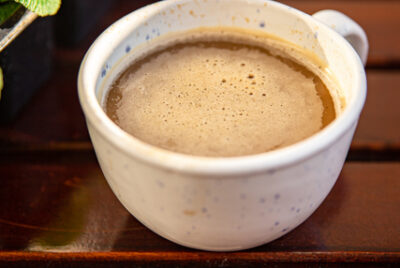Does Coffee Expire? A Deep Dive into Coffee Shelf Life
Ah, coffee, that delightful brew that kicks us into gear each morning! But have you ever rifled through your pantry, found an old bag of coffee, and wondered, “Does coffee expire? Does this even go bad?”
Let’s unravel this mystery, shall we?
Does Coffee Expire? Introduction to Coffee Preservation
Like most consumables, coffee doesn’t stay fresh forever. But, while it might not turn moldy or slimy like some expired foods, its flavors can degrade over time. So, while it may not “expire” in the traditional sense, its aromatic appeal might.
The Different Forms of Coffee
Whole Beans
Whole coffee beans are like the majestic kings of the coffee world. When stored correctly, they retain their freshness for the longest, often up to a month after being opened. But once you grind them, the clock starts ticking faster.
Ground Coffee
The convenience of pre-ground coffee comes at a cost: a shorter shelf life. When exposed to air, its flavor compounds break down more quickly, leading to a more rapid decline in taste quality. Usually, it lasts about 1-2 weeks once opened.
Instant Coffee
Ah, the trusty backup! Instant coffee can last a long while, thanks to its dry state and often robust packaging. But like its counterparts, once exposed to air and moisture, it can degrade.
Factors Affecting Coffee Freshness
Packaging
The way coffee is packaged can significantly influence its freshness. Here’s why:
Valve Bags:
Ever noticed a little one-way valve on some coffee bags? These valves release the carbon dioxide that fresh coffee beans emit without letting external air in. It’s a genius system to prevent the bag from bursting and maintain freshness.
Sealed Bags:
Vacuum-sealed bags that have been purged of oxygen can significantly extend the life of your coffee by minimizing its exposure to air.
Opaque Packaging:
Transparent packages might let you admire the coffee inside, but they also let in light which can degrade the quality of coffee. Opaque bags protect against this.
Storage Conditions
Your coffee’s storage environment can make or break its freshness. Here are some critical factors to consider:
Air Exposure:
When coffee comes into contact with air, it starts oxidizing, which can deteriorate its quality. Always ensure you seal your coffee bag or container tightly.
Moisture:
Coffee beans are like tiny sponges; they can absorb moisture, which not only ruins flavor but can also lead to mold growth. A dry storage environment is crucial.
Temperature Fluctuations:
Store your coffee in a place with a consistent temperature. Avoid places like above the oven or near windows with direct sunlight.
Light:
Direct light can cause coffee beans to become stale faster. Always keep them in a dark place or an opaque container.
Roast Date
The time since the beans were roasted can impact the freshness. Typically, freshly roasted beans will emit carbon dioxide and will have peak flavor within a few days to weeks of roasting. After a month, even the best beans will start losing their ideal flavor profile.
Bean Quality
Higher quality beans, often those that are shade-grown, hand-picked, and promptly processed after harvesting, tend to have a more extended freshness period compared to mass-produced, lower quality beans.
Grind Size
The moment you grind your coffee beans, you expose a larger surface area to air, leading to faster oxidation. Coarse grinds will stay fresh slightly longer than fine grinds. If you want to preserve freshness, grind your beans just before brewing.
In essence, how fresh your coffee remains over time depends on a combination of its packaging, storage conditions, the time since roasting, the quality of the beans, and the grind size. By understanding and controlling these factors, you can enjoy flavorful coffee for longer.
Recognizing Stale Coffee
You’ve just brewed a cup, eagerly anticipating that rich aroma and vibrant flavor, only to be greeted by a flat, lackluster taste. What went wrong? Chances are, your coffee has gone stale. Recognizing stale coffee is essential for any enthusiast because, let’s face it, life’s too short for a bad cup of joe! Here’s how you can spot it:
Aroma Fades
One of the earliest signs of coffee losing its edge is a diminished aroma. Fresh coffee boasts a powerful, invigorating scent, which is often the first thing coffee lovers look forward to. If your coffee lacks that characteristic smell or it seems weak, it’s a sign of staleness.
Lack of Flavor Complexity
Fresh coffee has layers of flavors – from fruity to nutty, chocolatey to spicy, depending on the origin and roast. Stale coffee, on the other hand, tends to taste flat and one-dimensional. If your coffee lacks depth and tastes dull, it’s probably past its prime.
Bitter or Sour Aftertaste
Fresh coffee should have a pleasant aftertaste that lingers. Stale coffee can often leave an unpleasantly bitter or even sour taste in the mouth. If your coffee leaves a strange taste behind, it might be stale.
Appearance of the Beans
Take a close look at your coffee beans. Fresh beans have a certain sheen to them, thanks to the natural oils that come to the surface after roasting. If your beans appear overly dry or lack that subtle shine, they might be aging.
Touch Test
This is a lesser-known trick but can be pretty effective. Take a bean and try to press it between your fingers. Fresh beans will be somewhat brittle and snap easily, whereas stale beans might bend or feel rubbery.
Sounds Strange? The ‘Brew Bubble’ Test
When you brew fresh coffee, especially using methods like pour-over, you might notice bubbles forming due to the release of carbon dioxide (a natural by-product of roasting). A lack of these bubbles can hint at stale coffee.
Trust Your Gut
Sometimes, it’s just about instinct. If something feels off, whether it’s the texture, taste, or aroma, trust your gut. As a coffee enthusiast, your palate will become attuned to detecting the nuances in different brews.
The Impact on Health: Is Expired Coffee Safe?
Drinking stale coffee won’t typically harm you. However, coffee can grow mold under certain conditions, and you definitely don’t want to ingest that. Always check for signs of mold or off-putting smells. Also, if it contains milk, keep in mind the milk can go bad.
Maximizing Your Coffee’s Shelf Life: Tips and Tricks
How do you ensure that your coffee remains as fresh as the day it was roasted? Let’s dive into some tried-and-true methods to prolong the life of those precious beans!
Storage is Key
Airtight Containers:
Once you’ve opened that bag of coffee, transfer the beans to an airtight container. This will prevent unwanted air and moisture from making their way in. Glass or ceramic containers are ideal, but if you opt for plastic, ensure it’s of high quality.
Away from Light and Heat:
Sunlight and heat are enemies of coffee freshness. Store your container in a cool, dark place. A pantry or cupboard away from the stove or any heat source is perfect.
Buy Whole Beans
Grind as You Go:
Coffee begins to lose its freshness almost immediately after grinding. For the best flavor, grind only the amount you need just before brewing. Investing in a good coffee grinder can make a world of difference.
Avoid the Fridge or Freezer
While some people swear by storing coffee in the fridge or freezer, it can introduce moisture and condensation. This can damage the oils in the coffee, leading to a dull or even rancid taste. If you must freeze (for long-term storage of bulk purchases, for example), ensure the coffee is in a completely airtight container and allow it to come to room temperature before brewing.
Mind the Expiry Date
Most coffee bags come with a roast date or expiry date. While coffee won’t exactly “spoil” like milk, it does go stale. As a rule of thumb, try to consume it within a month of the roast date for the best flavor profile.
Vacuum Sealing for the Win
If you’re someone who stocks up on coffee, consider vacuum sealing portions of it. This method removes air from the equation entirely, ensuring longer shelf life.
Keep Beans Dry
Moisture is a major culprit in reducing coffee freshness. Always ensure your hands are dry when handling coffee, and never use a wet spoon to scoop beans or grounds.
Purchase Fresh-Roasted Coffee
If possible, buy your coffee from local roasters who roast in smaller batches. This ensures you’re getting beans that haven’t been sitting on a shelf for months. Plus, supporting local businesses is always a win!
Rotate Your Stock
If you have multiple bags of coffee, try to use the oldest one first. It’s a simple principle of stock rotation that can be applied to many food items.
Does Coffee Expire Conclusion
Answering the question “Does coffee expire?”, the answer is “it always go stale, and depending on what’s in the coffee, it can expire”. When it expires depends on the type of coffee and what has been put into the brew.
In the grand scheme of things, ensuring your coffee remains fresh is both a journey for the palate and a testament to the respect we have for this beloved brew. Treat your coffee right, and it’ll undoubtedly return the favor with every vibrant, flavorful sip. So, the next time you find that forgotten bag in your pantry, give it a quick quality check. Your taste buds will thank you!
Remember, while coffee might not “expire” rapidly, its symphony of flavors does have a shelf life. Cherish it while it lasts!
Does Coffee Expire FAQ
How long can I keep coffee beans?
Typically, whole coffee beans can stay fresh for about a month once opened if stored correctly.
Does freezing coffee keep it fresh?
While some swear by this method, the constant thawing and freezing can degrade the coffee’s quality.
Can coffee expire and mold?
Yes, especially if exposed to moisture. Always store in a dry place.
Does instant coffee ever go bad?
Eventually, yes, especially if exposed to moisture and air. However, it generally has a longer shelf life than other forms.
Is it okay to drink coffee that’s been sitting out?
Coffee can develop harmful bacteria if left out for too long, especially if it has additives like milk. It’s best to drink freshly brewed coffee and avoid consuming any that’s been sitting out for over 12 hours.




